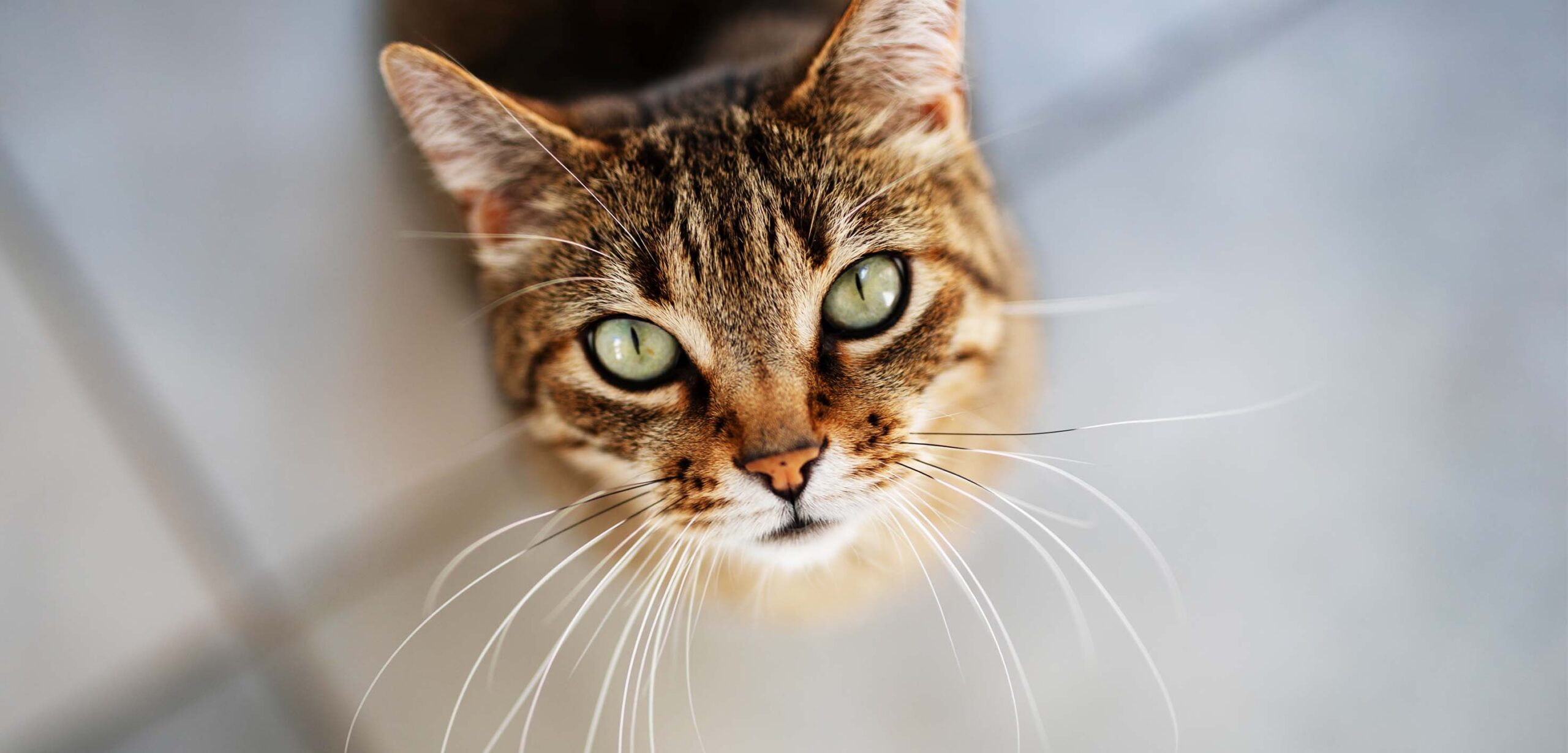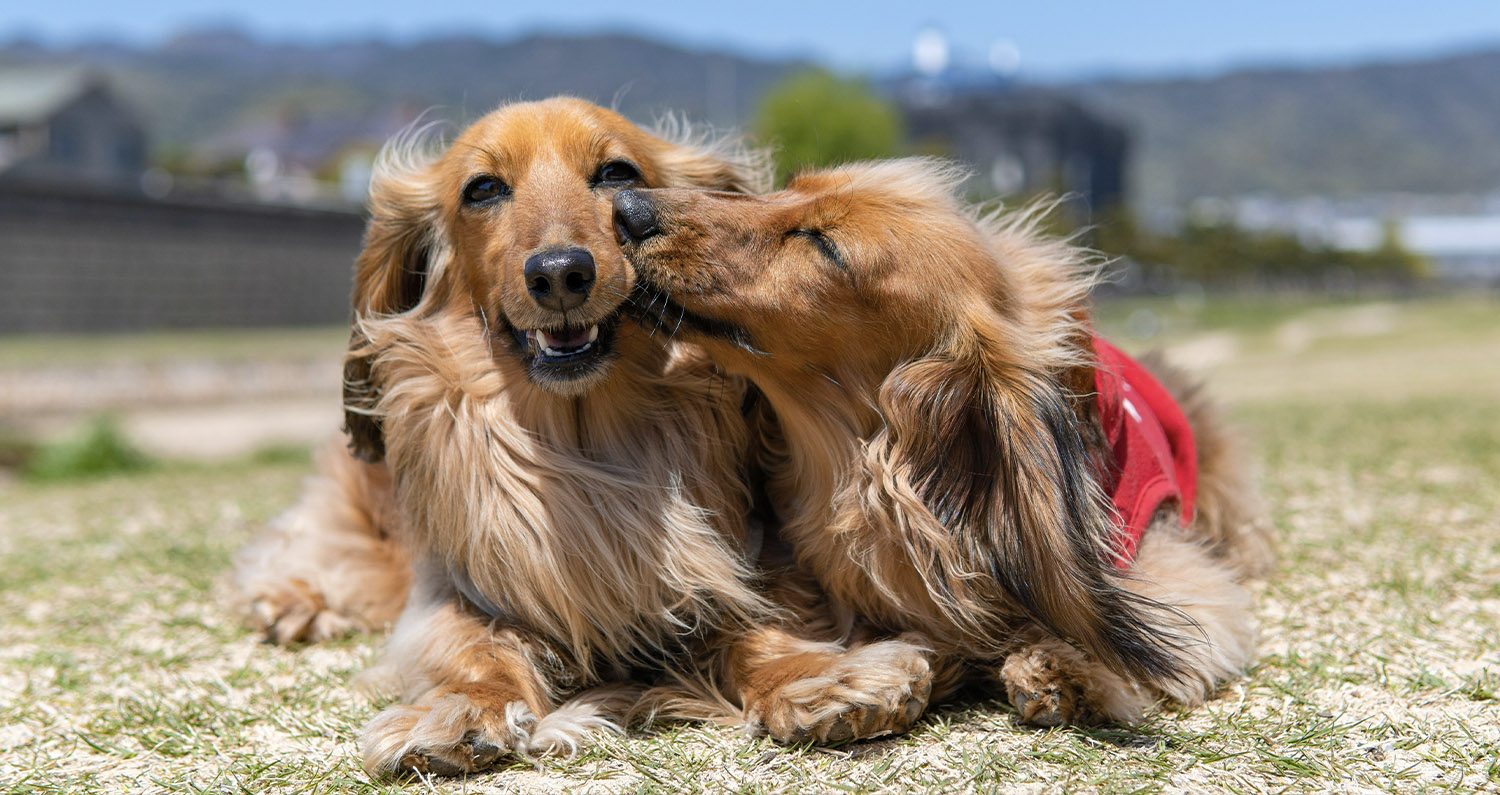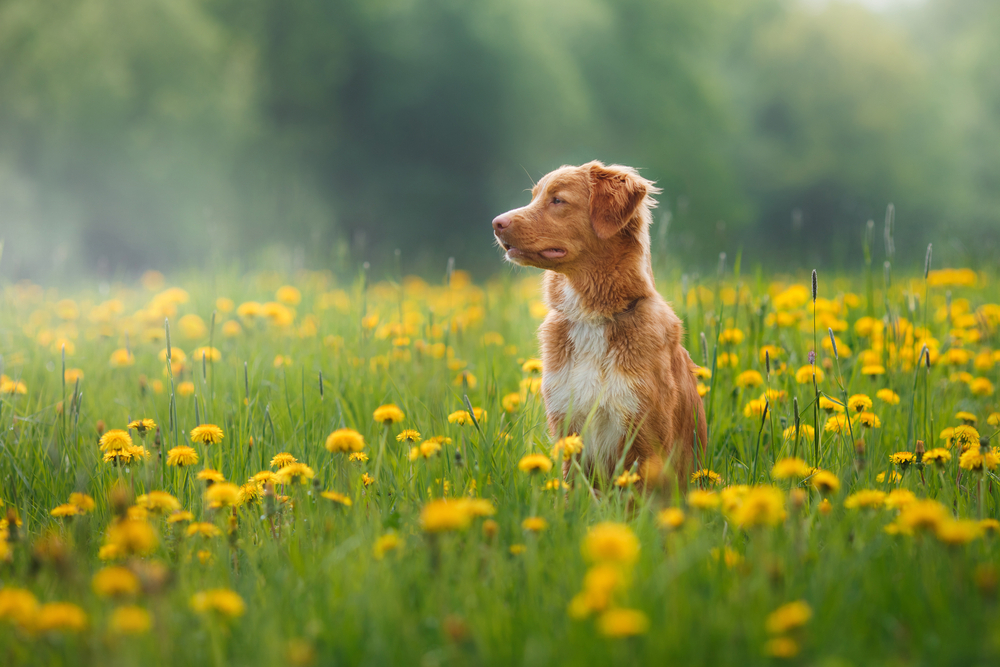When used alongside complementary herbs, passionflower is one of the best ways to ease anxiety in dogs.
Native Americans understand passion flower’s benefits. When they first met Spanish explorers, they shared their knowledge. To the Spanish conquistadors, the parts of the flower symbolized their Christian religious beliefs. That’s how the plant got the name we use today.
With its benefits and healing properties, this coveted herb deserves a closer look.
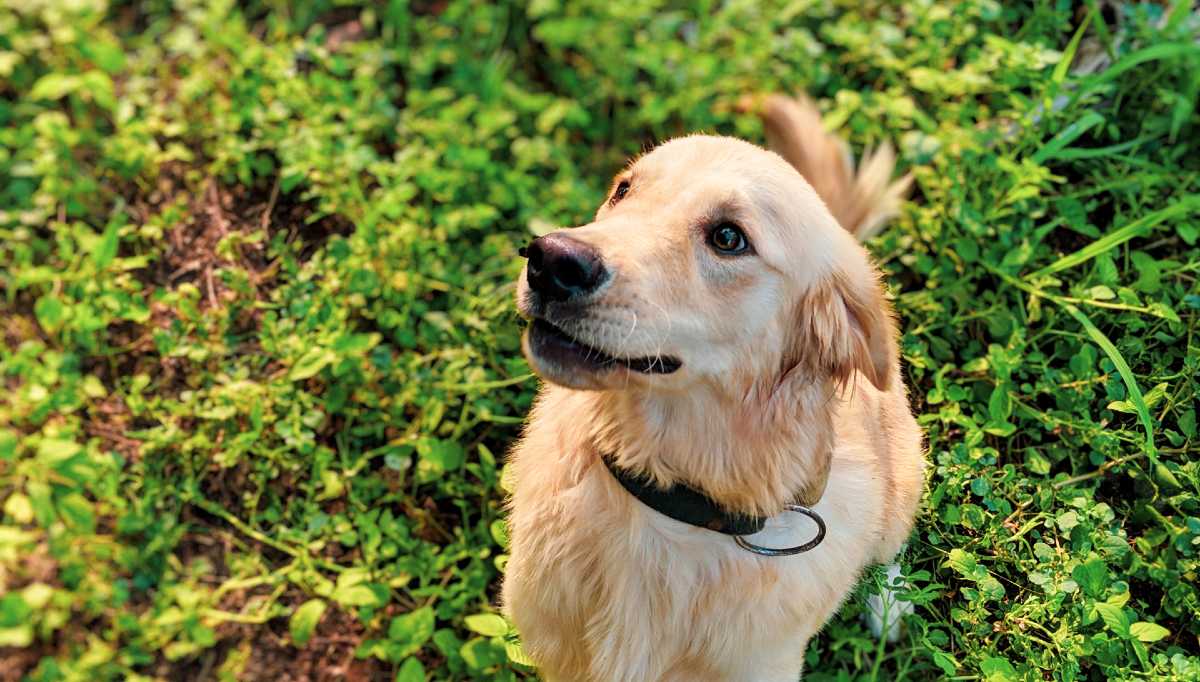
On The Agenda
What is a Passion Flower?
Passion flower, or passiflora, is probably best known for its dramatic, eye-catching blossoms. For centuries, this flower herb has been cultivated not just for its beauty but for its array of medicinal properties.
Passion flower does double duty as a garden showstopper and a natural way to ease anxiety in dogs (and their humans, come to mention it).
There are over 500 varieties of passion flowers. Many of them are vines, but this adaptable herb can grow as a shrub or even a small tree. It produces tasty fruit similar to an orange, and those big, showy flowers appear in late spring… but only for a single day.
It has long been used to treat a variety of nervous conditions like insomnia and anxiety, ailments practitioners of Traditional Chinese Medicine associate with heart fire.
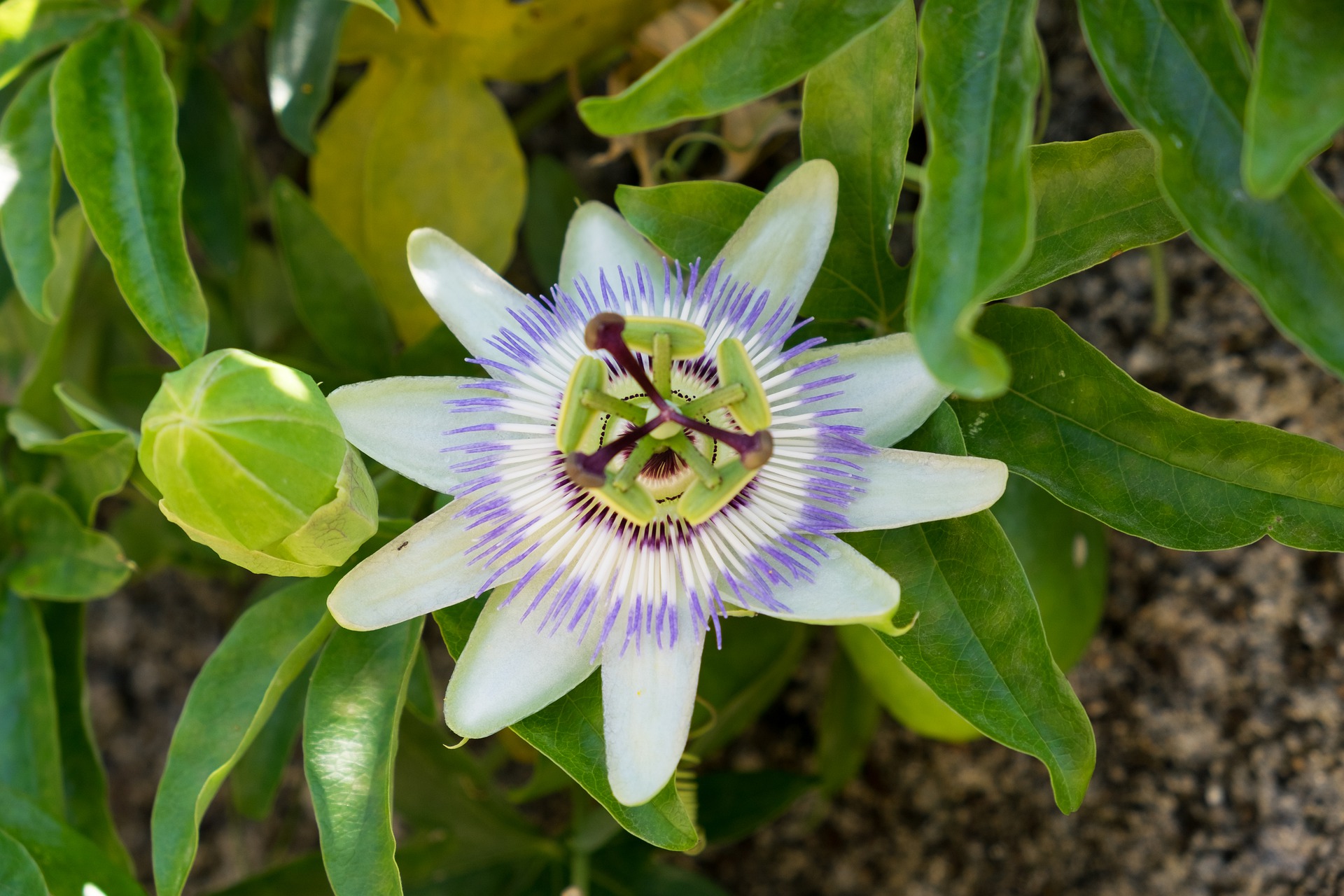
Where Does Passion Flower Come From?
Passion Flowers come from Central and South America, where indigenous people have cultivated them for thousands of years. They use the herb for medicinal purposes, smoke the leaves, and enjoy the delicious maracuja, or passion fruit. Today, this hardy plant thrives in any warm, tropical climate. It’s common across Asia and in New Guinea.
How Passion Flower Works

Both the Native Americans who take advantage of passion flower’s properties and practitioners of Traditional Chinese Medicine recognize the plant’s calming and soothing qualities. From a Western perspective, the seed’s calming and sedative properties are attributed to the flavonoids found in the seed.
But what’s quite apparent is that both perspectives are saying the same thing.
Promotes Relaxation
Anxiety occurs when your dog’s emotions bubble over. It can be brought on by separation from you, new additions to her environment, or changes in routine. And anxiety manifests in many ways– through behaviors like barking and howling, whining and pacing, even aggression.
From a TCM perspective, it’s the heart that governs thought, mood, and emotion. The heart is associated with fire, or yang. Too much heat can result in excitability and anxiety.
One way passionflower keeps the heart in balance is by grounding excess yang moving up from the liver and preventing an overabundance of emotion or heat in the heart– what we would see as an overanxious dog. This helps right the imbalance that’s overloaded with heat or emotion to ease those anxious feelings.
From a traditional herbal medicine perspective, passionflower is a nervine relaxant– meaning it’s a plant that affects the nervous system. This class of nervines has calming, hypnotic, and sedating properties, used in cases of anxiety and hyperactivity.
Western medicine attributes passion flower’s relaxing properties to flavonoids. As an added benefit, flavonoids contain antioxidants–nutrient powerhouses that neutralize free radicals and prevent oxidative stress that can lead to premature aging, cognitive decline, and other serious conditions. So, when you use passionflower for your dog’s occasional anxiety, you’re also defending against oxidative damage to support healthy aging.
Relaxing Properties
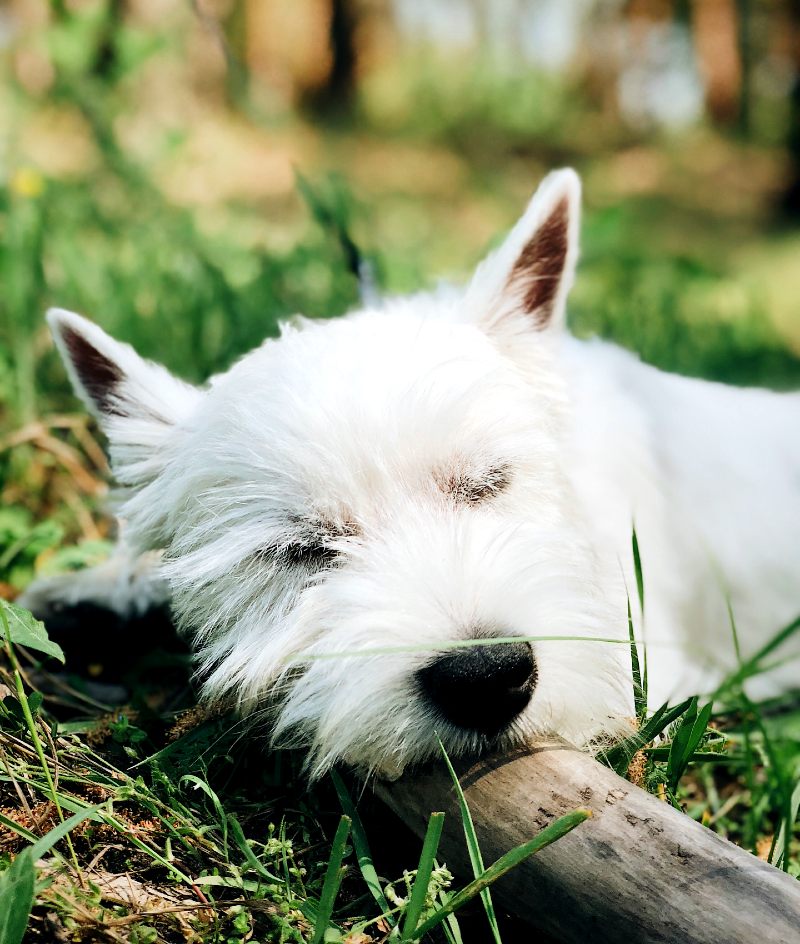
These flavonoids also help quiet activity in the brain to support sleep. It doesn’t force sleepiness but rather encourages relaxation and normal sleep, which is disrupted by the stress and anxiety a dog feels in uncomfortable moments.
Because passionflower promotes relaxation, has mild sedative properties, and instills a sense of calmness and well-being, it can be a true lifeline when stressful situations overwhelm pups.
Herbs and Their Potential
Passionflower is a beneficial herb on its own, but herbal practitioners have known for centuries that ingredients work best in the right combinations.
The herb is at its best when combined with herbs like chamomile, and valerian, which boost its calming properties and balance its effects.
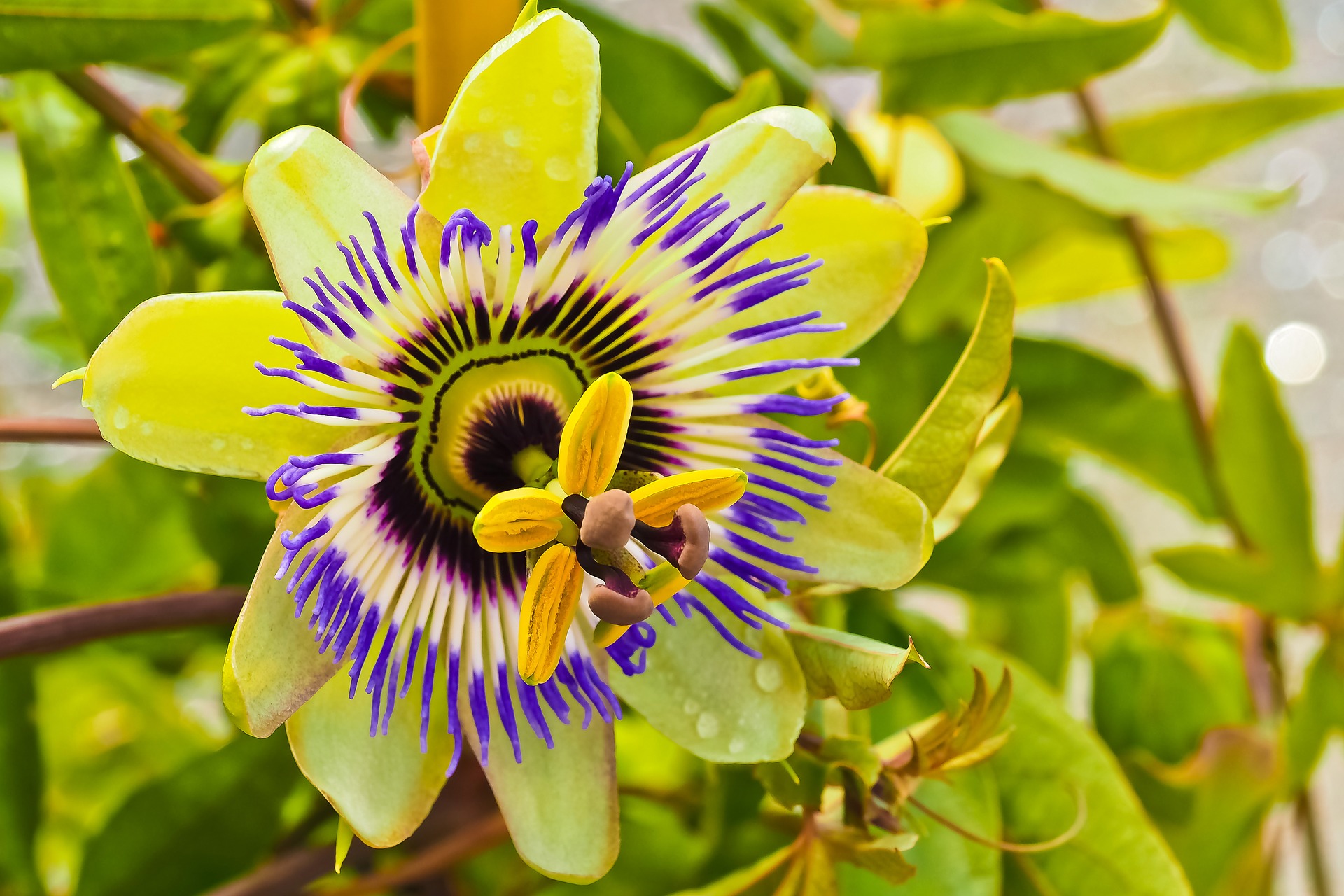
How Dr. B Uses Passion Flower
By taking advantage of each individual component’s benefits and how they work together, Dr. Bessent has developed a safe and effective formula for dogs who experience occasional anxiety.
Anxiety affects humans much the same way it affects our pets. Anxiety can be a normal, healthy emotion that every single dog can and likely will experience the feeling in their lives.
It’s our pets’ way of coping with stress, and oftentimes it’s situational; when going to the vet, during long car rides, because of fireworks, thunderstorms, meeting new people…
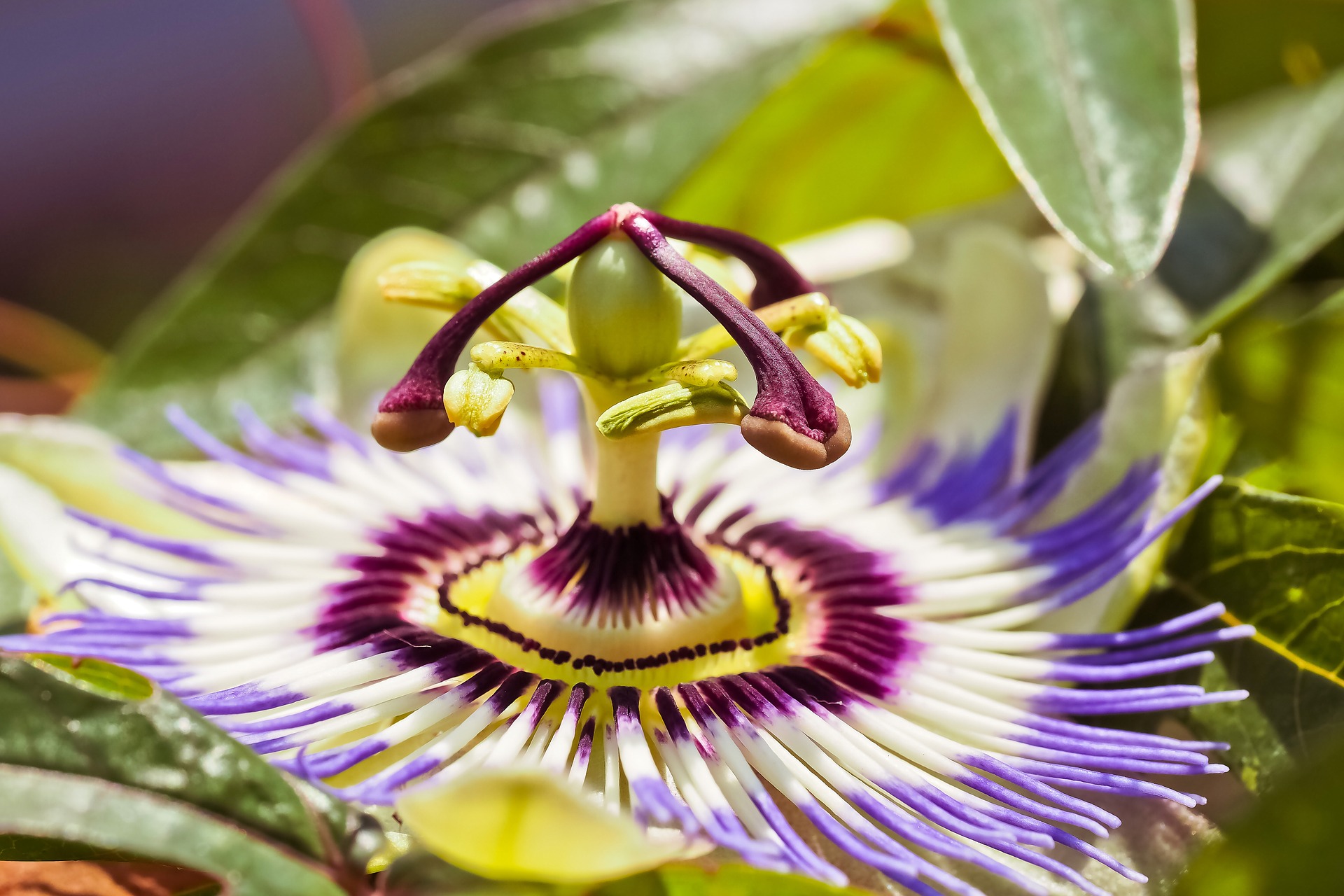
So, being prepared with the aptly named July Third can offer quick-acting, non-drowsy relief when your dog needs it most. Give 1-2 hours before the booms are set to go sky high, before heading out on your next road trip, or to get their hair and nails clipped; it’s a gentle and effective way to put your dog’s mind at ease.
July Third acts quickly when a temporary solution is needed, but for dogs with daily, unending anxiety, it’s a different approach– one that utilizes the long-term calming herbs of Calm Shen to balance emotional highs and lows.
If you’re unsure whether your dog would benefit from one, the other, or maybe both, you can take the quiz for a personalized recommendation.
Know that passionflower plays a key role in offering the quick-acting relief your dog needs, but it is just one herb. It has benefits and such potential on its own, but what traditional Chinese medicine has shown time and time again is the capabilities of herbs when they come together.
No one herb does it alone
Share this Post

Dr. Chris Besent
Chris Bessent, DVM, MSOM, Dipl. OM, L.Ac. has over thirty years of experience in veterinary medicine including certificates in veterinary acupuncture, veterinary chiropractic and veterinary Chinese herbology. Imbued with Eastern philosophy and the knowledge that food is the foundation of health, Dr. Bessent also received her degree in veterinary nutrition and began to formulate recipes fit for a carnivore from nothing but whole foods. Currently, she divides her time between the Simple Food Project and Herbsmith, both of which are owned and operated out of her facilities in southeastern Wisconsin.

August Li - Content Writer
August is an author, artist, and animal activist. He lives on the coast of South Carolina, where he spends his days looking for sea glass, merpeople, and friendly cats.

Kayla Behling - Editor
Kayla is the Content Editor for Herbsmith. She has a cat named Professor Cat-Faced Meowmers, who goes by Kitty, and a goof of a dog, named Duck. She stays busy biking trails, playing board games, and searching for the next best craft beer.

